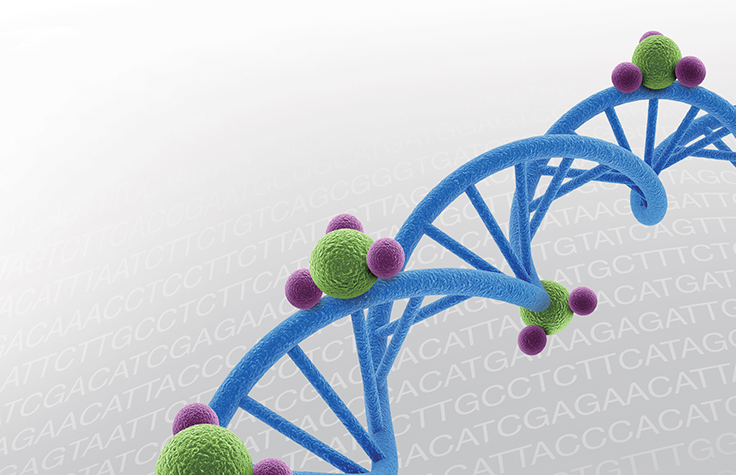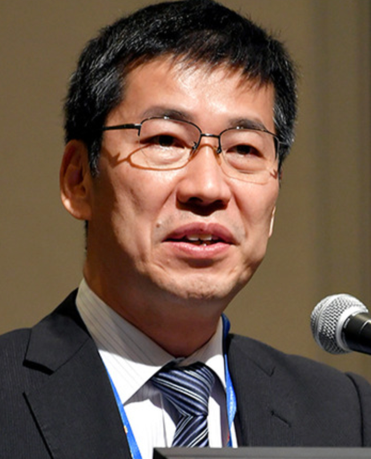
詳細
 Dr. Toshikazu Ushijima
Dr. Toshikazu UshijimaChief of Division of Epigenomics, National Cancer Center Research Institute, Japan
立がん研究センター研究所
エピゲノム解析分野 分野長
牛島 俊和 先生
Dr. Toshikazu Ushijima is the Chief of Division of Epigenomics, National Cancer Center Research Institute. He has been leading the field of inflammation and epigenetics since establishing the concept of epigenetic field cancerization, identifying molecular mechanisms of aberrant DNA methylation induction, and bringing the findings into cancer risk diagnosis. He was awarded the Bälz prize and Princess Takamatsu Cancer Research Fund prize.
1986年東京大学医学部卒。研修医、血液内科専門医を経た後、1989年から国立がん研究セター研究所。化学発がんの研究からエピゲノム研究へと発展させてきた。1997年に世界で最も早い時期のゲノム網羅的なDNAメチル化解析法を開発した。慢性炎症に曝露した胃粘膜には既にDNAメチル化異常が蓄積していること、その量が胃がんリスクと相関することを発見した。慢性炎症によるDNAメチル化異常誘発機構の解明を進め、さらに、胃粘膜DNAメチル化レベルを用いたリスク診断の実用化も行っている。国際ヒトゲノムコンソーシアム科学委員(2011-)、CREST「疾患エピゲノム」副総括(2011-2019)、Cancer Letters Associate Editor (2010-)。
Webinar Abstract:
Many types of adult cancers are induced by chronic inflammation. Chronic inflammation is known to accelerate age-related methylation, and also induce aberrant DNA methylation of unique genomic regions [Yamashita, Clin Epigenet, 11:191, 2019]. The accumulation level of aberrant DNA methylation in normal tissue can be correlated with cancer risk, forming an epigenetic field for cancerization. The accumulation level in the stomach is a powerful indicator to predict cancer risk, evidenced by a multicenter prospective clinical study [Asada, Gut, 64:388, 2015; Maeda, Gut, 66:1721, 2017]. Mechanistically, TET expression was down-regulated by increased expression of multiple miRNAs due to NF-κB activation, and DNMT activity was increased by exposure to nitric oxide. Simultaneous TET down-regulation and DNMT activation induced strong aberrant DNA methylation, while either event induced only minimal aberrant DNA methylation [Takeshima, J. Clin Invest, 130:5370, 2020]. In this webinar, Dr. Ushijima will share his experience on how to find novel truths from unwanted or garbage data, and to bring basic findings to clinical applications.
多くの成人がんは慢性炎症によって引き起こされる。慢性炎症は、加齢に伴うDNAメチル化を加速するのに加えて、特定のゲノム領域のDNAメチル化異常を誘発する(Yamashita、Clin Epigenet、11:191,2019)。正常組織におけるDNAメチル化異常の蓄積レベルはがんのリスクと相関する場合があり、エピジェネティックな発がんの素地を形成する。胃ではDNAメチル化異常の蓄積レベルが癌のリスクを予測するための強力なマーカーであることが、多施設共同前向き臨床研究によって証明されている(Asada、Gut、64:388、2015;前田、GUT、66:1721、2017)。DNAメチル化異常誘発のメカニズムとして、NF-κB の活性化による複数の miRNA の発現増加によりTET の発現低下が誘導され、一酸化窒素への曝露によってDNMTの活性化が誘発される。TET 発現低下またはDNMT活性化の一方のみでは最小限のDNAメチル化異常しか誘発されなかったのに対し、両者が同時に誘発されるとDNAメチル化異常が強く誘発された(Takeshima、J。Clin Invest、130:5370,2020)。このウェビナーでは、想定外のデータやゴミデータから真実を見つけ、基礎的な発見から臨床応用までつなげるこれまでの経験を共有したい。
Fill Out Form to Access Webinar
ご提供いただいた個人情報は、お客様へのサポート、サービス、および販売活動の目的にのみ使用させていただきます。
- 日時
- 2021/03/11
- 14:00 - 15:00
- Location
- Japan
- Asia
- Presenter
- 国立がん研究センター研究所
エピゲノム解析分野 分野長
牛島 俊和 先生 - Topic
- Cancer research